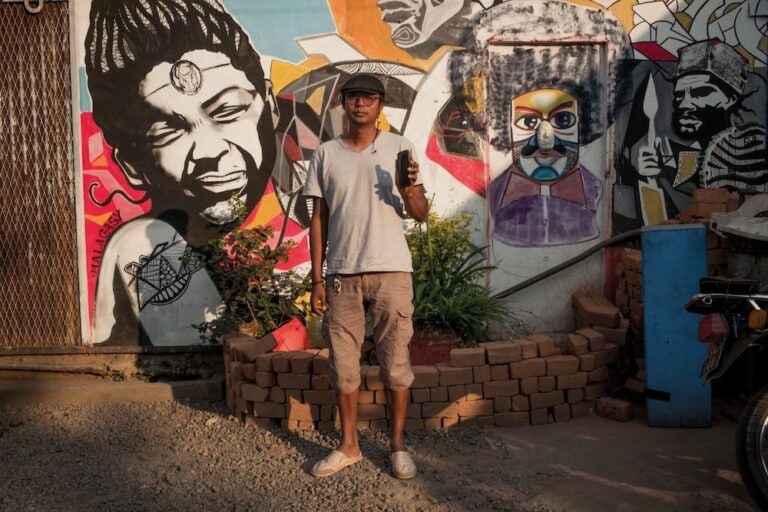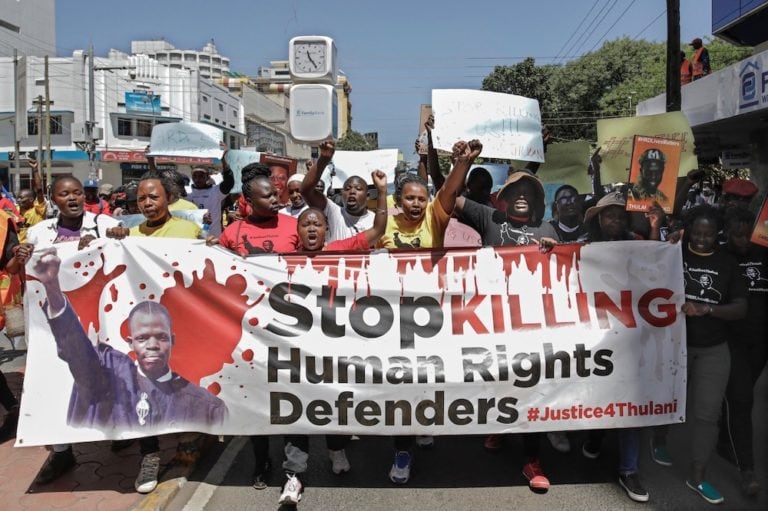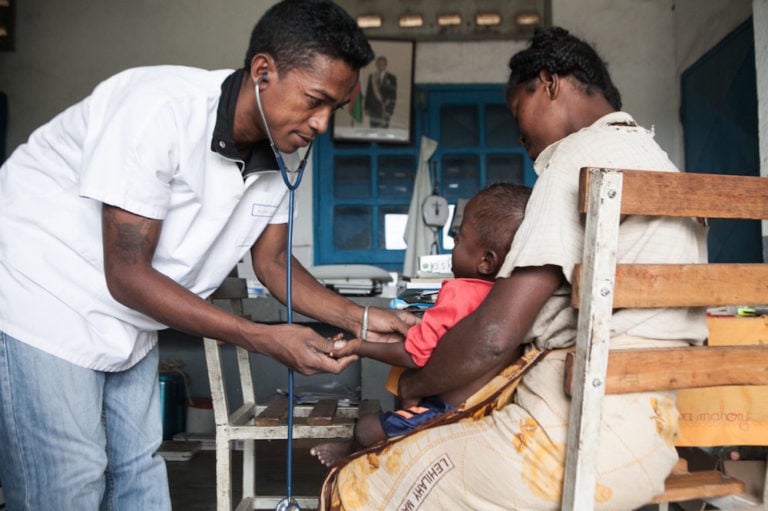(CPJ/IFEX) – The following is a 28 February 2002 CPJ press release: MADAGSCAR: Four radio stations attacked as post-election crisis deepens New York, February 28, 2002-Four radio stations were attacked and destroyed on February 23 as violence erupted over disputed presidential election results. Supporters of President Didier Ratsiraka allegedly attacked the offices of the Madagascar […]
(CPJ/IFEX) – The following is a 28 February 2002 CPJ press release:
MADAGSCAR: Four radio stations attacked as post-election crisis deepens
New York, February 28, 2002-Four radio stations were attacked and destroyed on February 23 as violence erupted over disputed presidential election results.
Supporters of President Didier Ratsiraka allegedly attacked the offices of the Madagascar Broadcasting Service’s (MBS) radio station in Fianarantsoa, some 90 miles south of the capital, Antananarivo. The station’s facilities were set ablaze, seriously injuring three security guards.
MBS is owned by Marc Ravalomanana, Antananarivo mayor and opposition leader who declared himself president on February 22, prompting embattled president Didier Ratsiraka to declare a state of emergency.
After the MBS station was attacked, Ravalomanana supporters ransacked and destroyed Radio TSIOKAVAO, a private, pro-government station. Radio Vatovavy Mananjary, owned by former cabinet minister Jacquit Simon, and station ART Ambositra, owned by Prime Minister Tantely Andrianarivo, were also attacked.
On February 25, Malagasy State Radio and Television released a statement saying that its stations could not broadcast because supporters of President Ratsiraka had seized the outlet’s broadcast equipment, including transmitters, and moved it to an undisclosed location.
The conflict follows a hotly contested December 16 presidential poll between Ratsiraka and Ravalomanana. Ravalomanana claimed victory with 52 percent of the vote, but the Constitutional Court ruled that neither candidate had captured a clear majority and ordered a runoff. Ravalomanana rejected the ruling, and the second round of voting never occurred.
On February 22, Ravalomanana declared himself president; in response, Ratsiraka declared a state of emergency, which empowers the government to take control of public services and the media.
“Madagascar has long had a reputation as a stable democracy that respects freedom of expression,” said CPJ executive director Ann Cooper. “We call on all parties involved to cease their attacks on the press immediately.”
For more information about press freedom conditions in Madagascar, visit www.cpj.org. CPJ is a New York-based, independent, nonprofit organization that works to safeguard press freedom worldwide.


